If you’re living in Singapore, you’re probably aware of the country’s commitment to sustainable energy. One of the most popular sources of renewable energy in Singapore is solar power, and it’s not hard to see why. Singapore is located just north of the equator, which means it gets plenty of sunlight throughout the year. By harnessing the power of the sun with solar panels, you can generate clean, renewable energy for your home or business.
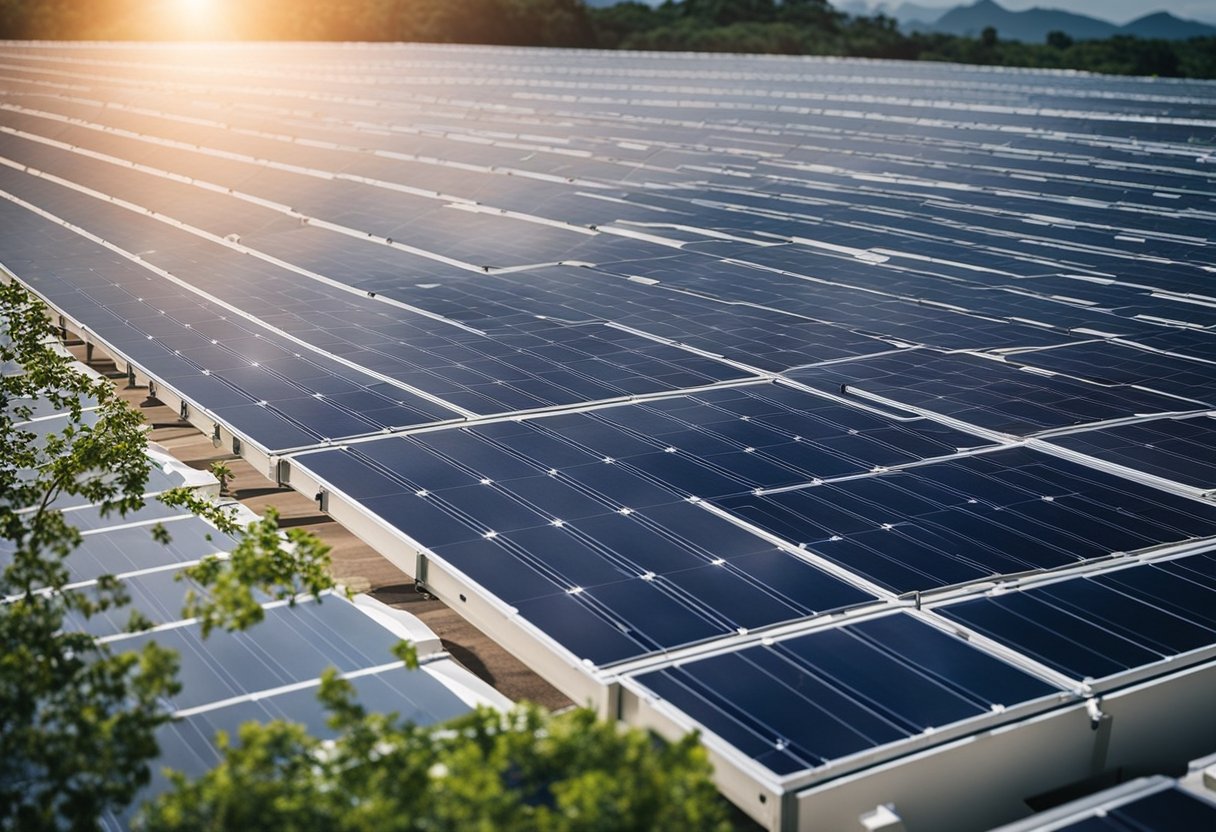
Understanding solar panels is key to investing in them. Solar panels work by converting sunlight into electricity. They’re made up of photovoltaic cells, which are designed to absorb sunlight and convert it into direct current (DC) electricity. This DC electricity is then converted into alternating current (AC) electricity by an inverter, which can be used to power your home or business. Solar panels are typically installed on rooftops, but they can also be installed on the ground or on other structures like carports or pergolas.
Solar panel installation in Singapore is a straightforward process, and there are plenty of reputable companies that can help you with the installation. Benefits of solar panels include reducing your carbon footprint, saving money on your energy bills, and increasing the value of your property. Investing in solar panels is a smart choice for anyone who wants to save money and help the environment at the same time.
Key Takeaways
- Singapore is committed to sustainable energy, and solar power is a popular source of renewable energy in the country.
- Solar panels work by converting sunlight into electricity, and they can be installed on rooftops, the ground, or other structures.
- Investing in solar panels can help you reduce your carbon footprint, save money on energy bills, and increase the value of your property.
Understanding Solar Panels
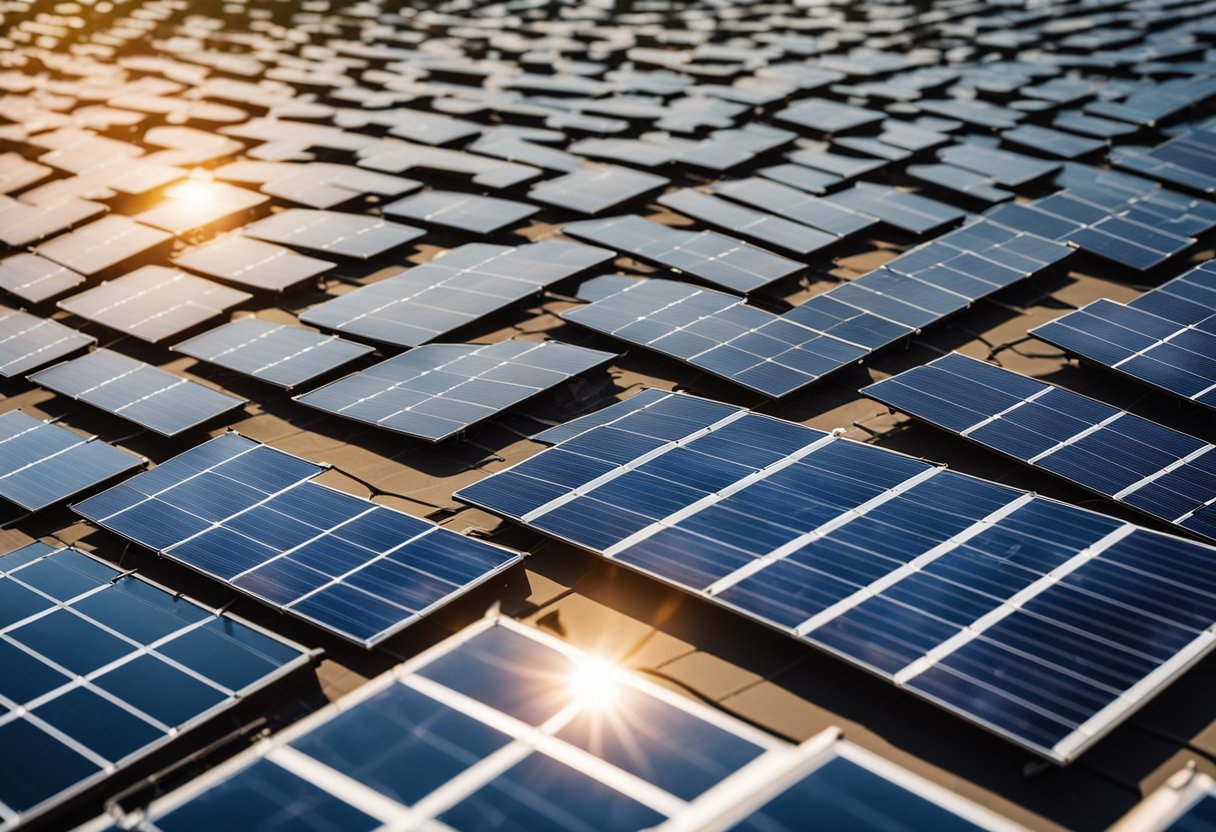
If you’re considering installing solar panels in Singapore, it’s important to understand how they work. Solar panels are devices that convert sunlight into electricity using photovoltaic (PV) cells. PV cells are made of semiconductor materials, usually silicon, which absorb photons of sunlight and release electrons, generating a flow of electricity.
Solar panels are designed to work in all types of weather and can still generate electricity on cloudy days. However, they are most effective when they receive direct sunlight. This is why it’s important to install solar panels in a location that receives plenty of sunlight, such as on a rooftop or in a garden.
The amount of electricity that solar panels can generate depends on several factors, including the size of the panel, the efficiency of the PV cells, and the amount of sunlight they receive. In Singapore, the average solar panel system can generate between 1.2 and 1.4 kilowatt-hours (kWh) of electricity per day per square meter of solar panel.
When you install solar panels, you’ll also need to install an inverter, which converts the DC electricity generated by the solar panels into AC electricity that can be used in your home. Some solar panel systems also include batteries, which store excess electricity generated during the day for use at night or during periods of low sunlight.
Overall, solar panels are a great way to generate clean, renewable energy and reduce your reliance on fossil fuels. With Singapore’s sunny climate, solar energy is an ideal choice for homeowners looking to reduce their carbon footprint and save money on their electricity bills.
Solar Panel Installation in Singapore
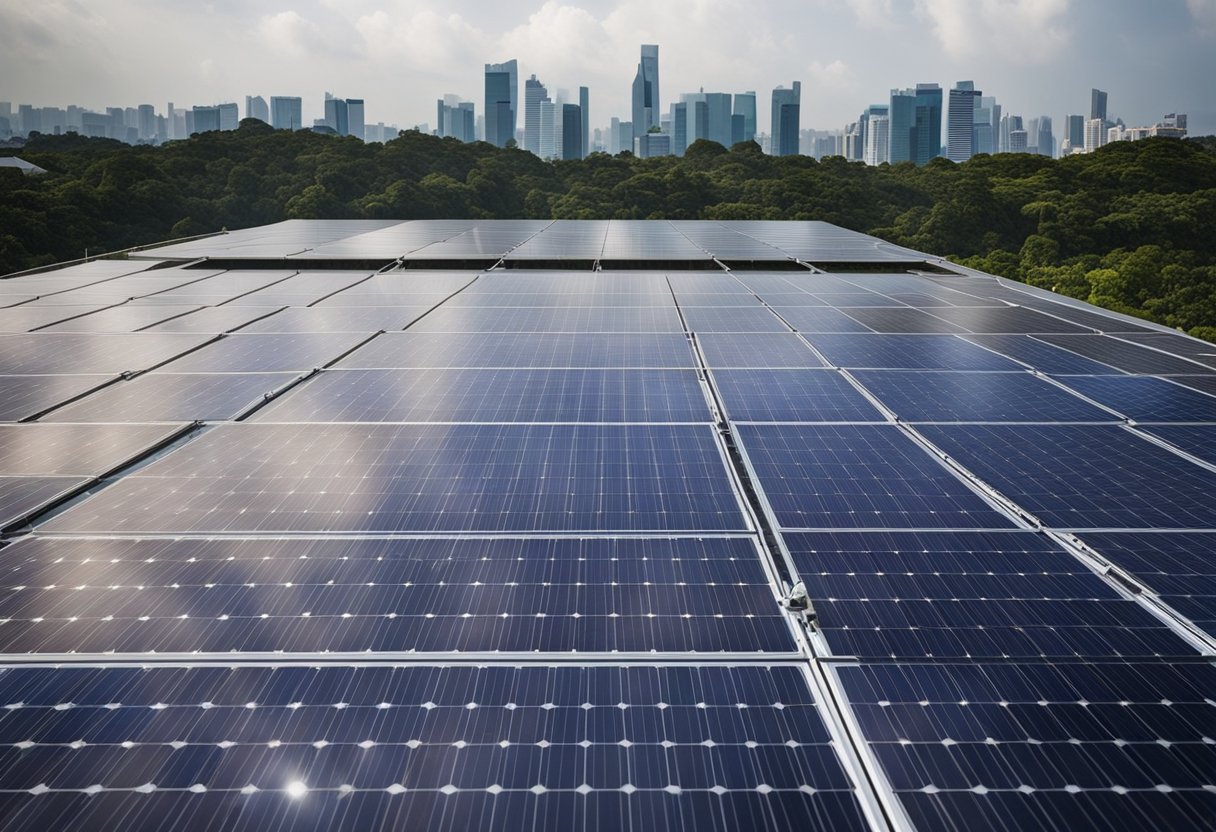
Are you considering installing solar panels in your home or business in Singapore? With the rise of renewable energy solutions in recent years, solar energy has become a popular choice for both residential and commercial use. Here’s what you need to know about solar panel installation in Singapore.
First, it’s important to find a licensed electrical worker (LEW) who is authorized to install solar panels in Singapore. You can find a list of licensed solar companies on the Energy Market Authority’s website. Once you’ve found a reputable solar installer, they will assess your property to determine the optimal placement and orientation of the solar panels.
The installation process typically involves procuring the solar panels, inverters, and other necessary equipment, as well as wiring and testing the system to ensure it is functioning properly. Depending on the complexity of the installation, it may take several days to complete.
Before installation can begin, you will need to obtain approval from the relevant authorities, such as the Building and Construction Authority (BCA) and the Management Corporation Strata Title (MCST) for condominiums. It’s important to comply with all building and electrical rules and regulations to ensure safety and avoid liability.
The cost of solar panel installation in Singapore can vary depending on the size of the system and the complexity of the installation. According to Solar AI, the average cost for a 10 kWp system in a landed property is around $20,000. However, there are government incentives and programs, such as the UOB U-Solar program and the Green Towns Programme, that can help offset the cost.
In addition to reducing your electricity consumption and saving money on your bills, installing solar panels can also contribute to sustainability and eco-friendliness. Many solar installation companies also offer operations and maintenance (O&M) solutions to ensure the longevity and efficiency of your solar PV system.
Overall, solar panel installation in Singapore can be a worthwhile investment for homeowners and businesses looking to reduce their carbon footprint and save on energy costs. Consider contacting a reputable solar installation company, such as Solargy or Sunseap Group, to learn more about your options and get started on your solar journey.
Benefits of Solar Panels
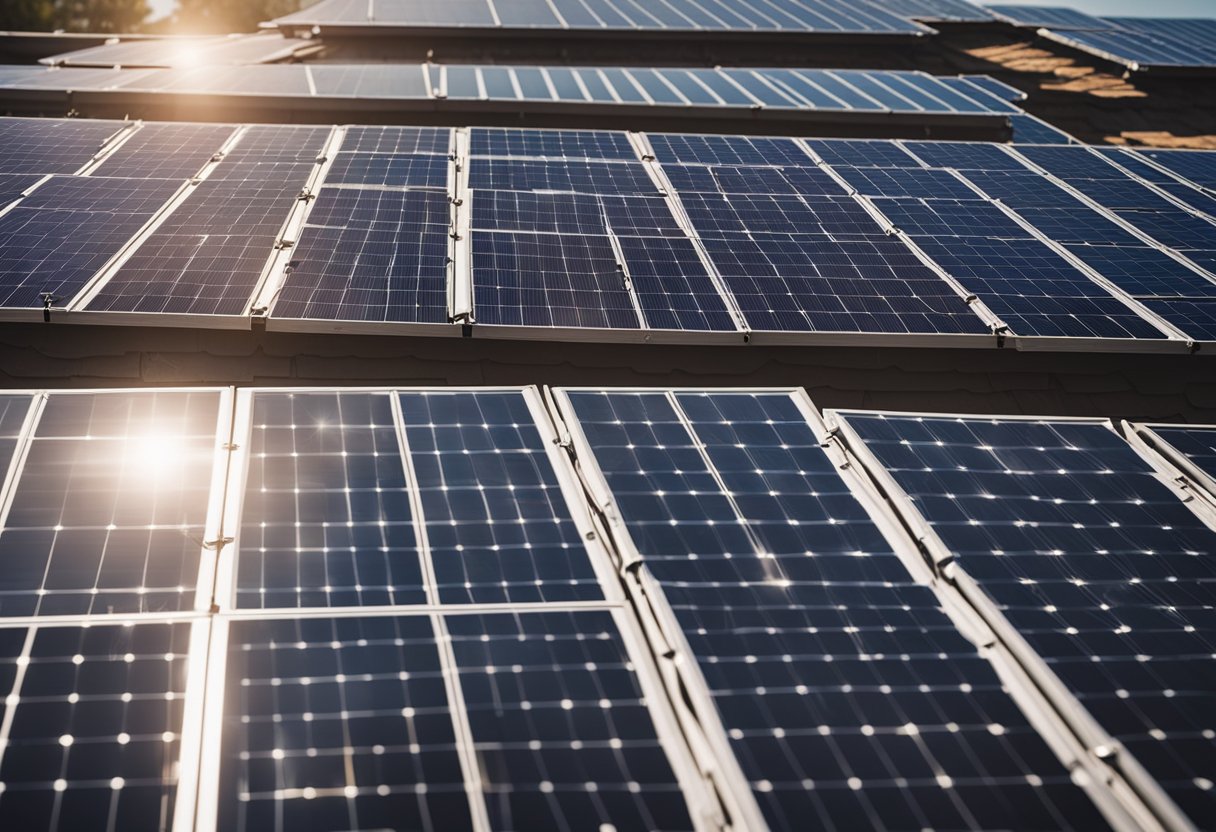
Installing solar panels in your home or business in Singapore comes with a plethora of benefits. Here are some of the most exciting advantages of solar power:
Cheaper Electricity Bills
One of the most significant benefits of solar panels is that they can help you save money on your electricity bills. By generating your electricity, you can reduce your reliance on the national grid and avoid paying for expensive electricity rates. In fact, according to Our World in Data, solar energy is currently the cheapest source of electricity in the world, and the cost of solar has declined by 89% from 2009 to 2019. So, by installing solar panels, you can enjoy the cheapest source of electricity and save money on your electricity bills.
Environmental Benefits
Solar panels are a renewable energy source, which means they generate electricity without burning fossil fuels. This results in a significant reduction in carbon emissions and a lower carbon footprint. By installing solar panels, you can do your part in reducing your impact on the environment and contributing to a cleaner, greener planet.
Long-Term Savings
Investing in solar panels for your home or business is a smart financial decision. Although the initial investment may seem high, the long-term savings are significant. Solar panels come with a warranty of 25 years or more, which means you can enjoy free electricity for decades to come. Additionally, you can export excess electricity back to the grid and receive credits on your electricity bills.
Low Maintenance
Solar panels are low maintenance and require little upkeep. Once installed, you can enjoy free electricity without worrying about ongoing maintenance costs. Most solar panels come with a warranty that covers any defects or issues, so you can rest assured that your investment is protected.
In conclusion, installing solar panels in Singapore comes with a host of benefits, including cheaper electricity bills, environmental benefits, long-term savings, and low maintenance. By investing in solar power, you can reduce your reliance on non-renewable energy sources, save money, and contribute to a cleaner, greener planet.
Investing in Solar Panels
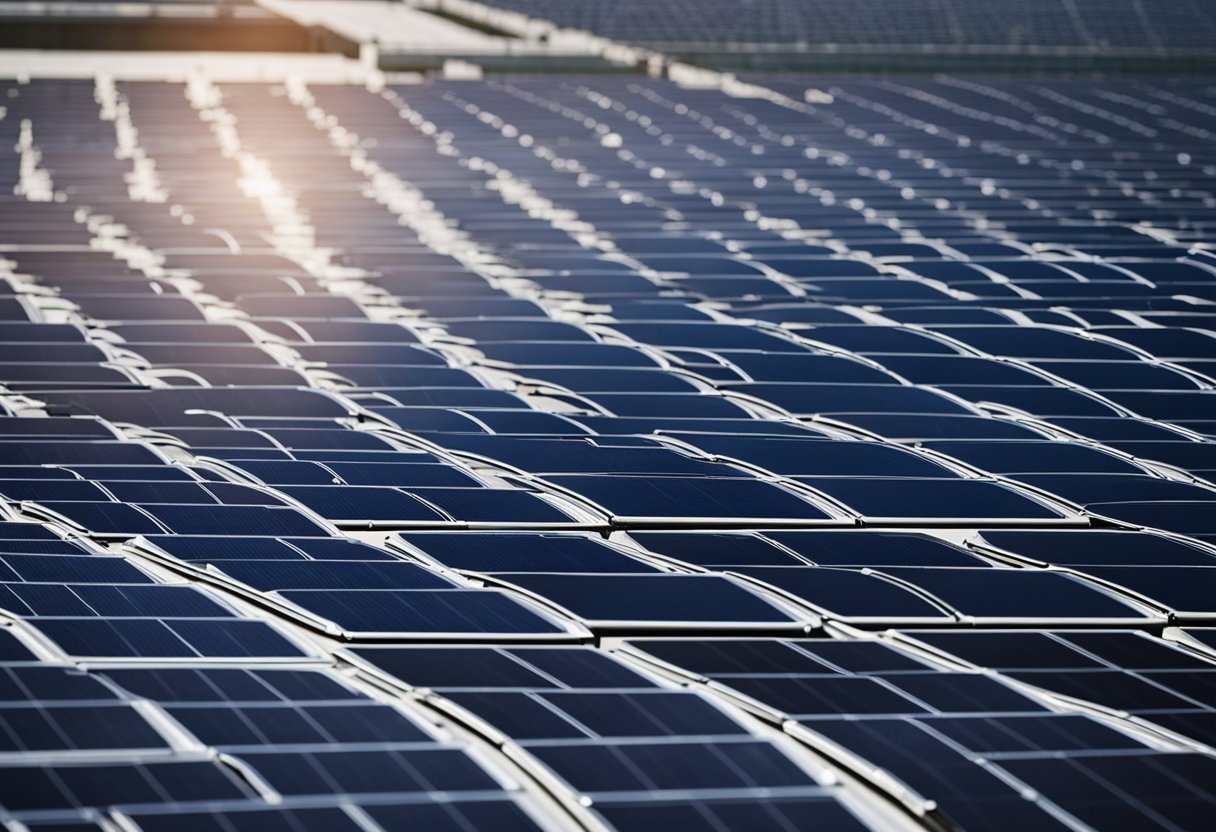
Are you considering investing in solar panels for your home or business in Singapore? It’s a great way to reduce your carbon footprint and save on electricity bills in the long run. Here are some things to keep in mind when making your investment:
Guide
Before investing in solar panels, it’s important to do your research and understand the technology and installation process. You can consult with a solar panel installation company or read online guides to learn more about solar panels and their benefits.
Investment
Investing in solar panels can be expensive, but it’s important to remember that it’s a long-term investment that can save you money in the future. You can also take advantage of government incentives and subsidies to offset the initial cost.
Size
The size of your solar panel system will depend on your energy needs and the size of your property. A larger system will generate more electricity, but it will also be more expensive. It’s important to find the right balance between cost and energy production.
Engineering
Solar panel installation requires engineering expertise to ensure that the system is installed correctly and safely. It’s important to choose a reputable installation company with experience in solar panel engineering to ensure that your system is installed properly.
Lifespan
Solar panels have a lifespan of around 25 years, but their efficiency will decrease over time. It’s important to choose high-quality panels that are durable and can withstand Singapore’s tropical climate.
Investing in solar panels can be a great way to save money and reduce your carbon footprint. Keep these factors in mind when making your investment to ensure that you choose the right system for your needs.
Frequently Asked Questions
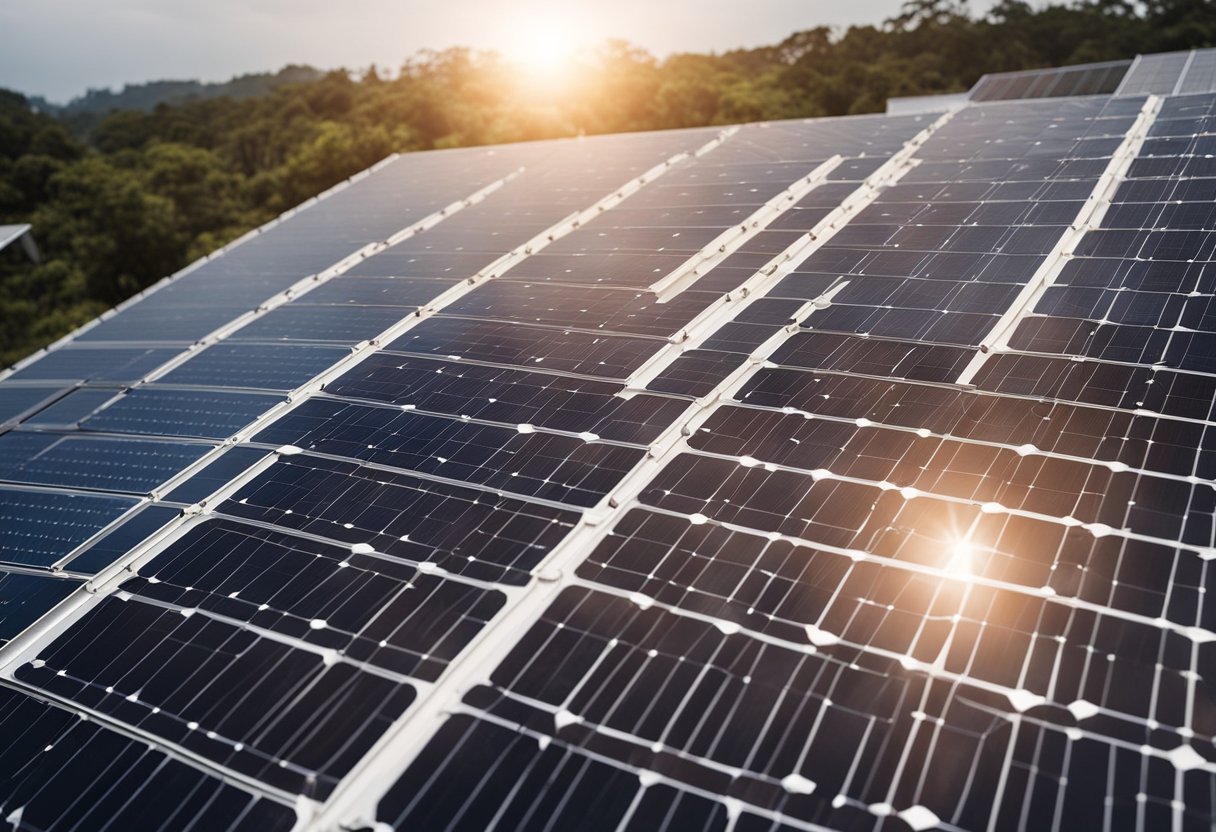
How can I install solar panels in my HDB flat in Singapore?
If you are interested in installing solar panels in your HDB flat in Singapore, you can contact a solar panel installer like Electrify to discuss your options. They can help you determine the best solar panel system for your HDB flat and provide you with a quote for installation.
What are the benefits of using solar panels in Singapore?
Using solar panels in Singapore has several benefits. First, it can help you save money on your electricity bills. Second, it can reduce your carbon footprint and help you contribute to a more sustainable future. Finally, it can increase the value of your property.
Where can I purchase portable solar panels in Singapore?
If you are interested in purchasing portable solar panels in Singapore, you can check out SolarPVExchange or PMCE. They offer a range of portable solar panels that are perfect for camping, hiking, and other outdoor activities.
Are there any government incentives for using solar panels in Singapore?
Yes, there are several government incentives for using solar panels in Singapore. For example, the government offers a SolarNova Programme that provides funding to support the installation of solar panels in commercial and industrial buildings. Additionally, the government offers a Solar Capability Scheme that provides funding to help companies develop solar energy capabilities.
How much money can I save by using solar panels in Singapore?
The amount of money you can save by using solar panels in Singapore depends on several factors, such as the size of your solar panel system, the amount of sunlight your property receives, and the cost of electricity in your area. According to Solar AI Technologies, the average cost of solar panel installation for a terrace house in Singapore stands at $18,000 for 20 solar panels with an 8 kilowatts peak (kWp) solar energy system. This includes rewiring the house’s electrical system to the grid with a photovoltaic (PV) system.
What are the environmental benefits of using solar panels in Singapore?
Using solar panels in Singapore has several environmental benefits. First, it reduces the amount of carbon emissions that are released into the atmosphere. Second, it reduces the amount of fossil fuels that are burned to generate electricity. Finally, it helps to promote a more sustainable future by using renewable energy sources.




